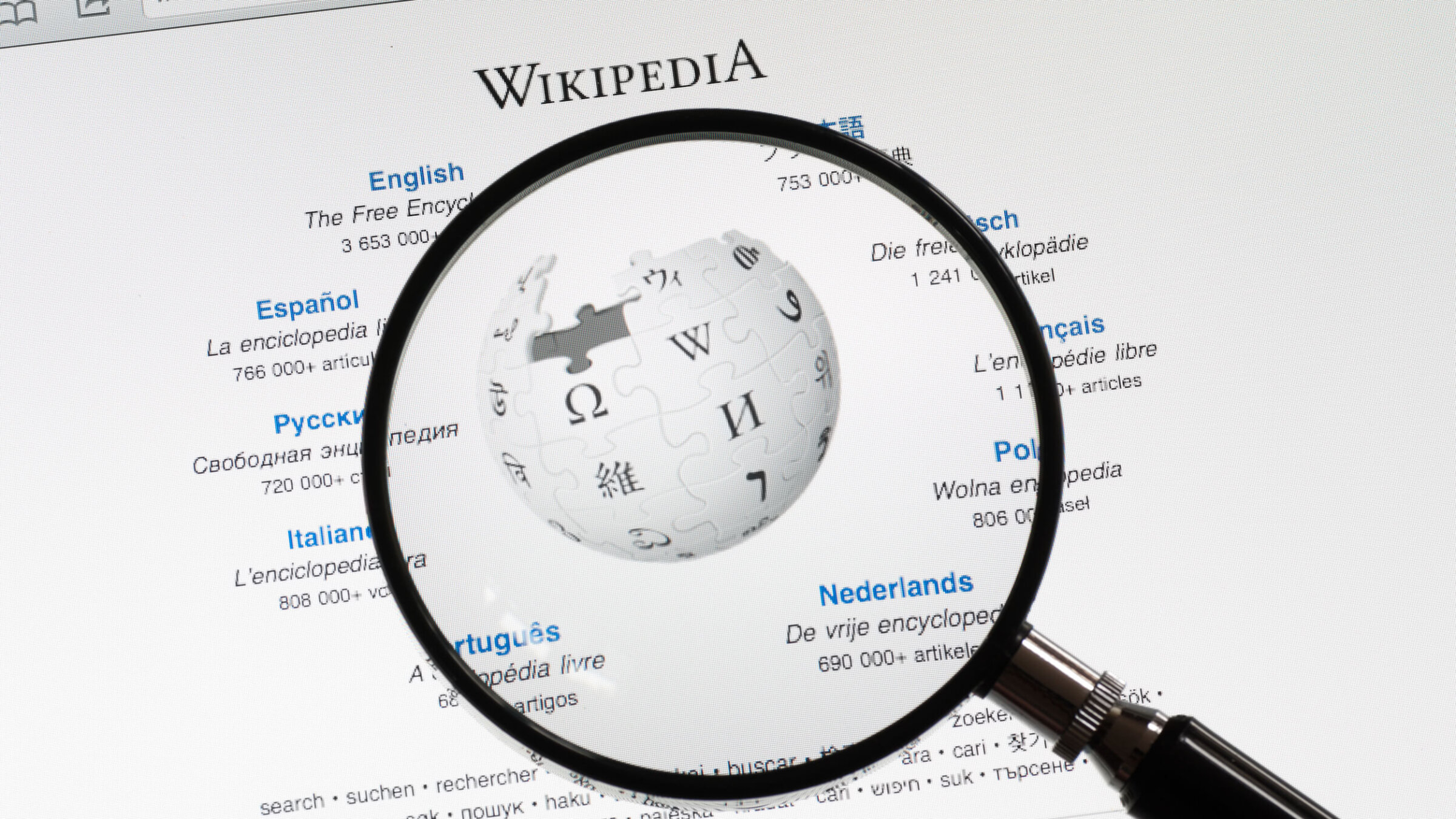Is Wikipedia a cesspool of antisemitism? Don’t trust the ADL’s answer.
The ADL misinterpreted my research to denounce the crowdsourced online encyclopedia

Does Wikipedia really have an antisemitism problem? Photo by iStock by Getty Images
Two dozen members of Congress recently accused Wikipedia of “antisemitism and pro-terrorist content,” citing a lengthy report by the Anti-Defamation League. To read that report, one would think that English Wikipedia is a cesspit of antisemitism. But I wrote one of the academic papers that the report cites, and I can tell you: Its interpretation of the facts is very skewed.
The ADL report and Congressmembers’ letter both rely on a faulty premise: that criticism of Israel or Zionism is inherently antisemitic. This is the same tired canard that President Donald Trump’s administration is using as a front to defund universities it claims are taking an insufficiently tough stance on antisemitism, and to arrest and attempt to deport students.
The ADL’s report is, dismally, riddled with errors, including in its manipulation of a peer-reviewed publication that I co-authored on Holocaust distortion on Wikipedia. The report inaccurately uses my research to uphold its allegations that antisemitism is running rampant across Wikipedia, amid the ADL’s ramped-up efforts to police public discourse about Israel. The organization sees Wikipedia, the eighth most-visited website in the world, as key to that endeavor.
In our research, my co-author, Jan Grabowski, and I examined Wikipedia articles about the Holocaust in Poland. We did find misinformation in English Wikipedia articles, and some of it was antisemitic.
But the content we scrutinized was limited in scope, and authored by half a dozen editors with, as we established, a far-right Polish nationalist agenda. Our research cannot reasonably be used to extrapolate broad conclusions about the extent of antisemitism on Wikipedia at large.
Another scholar, who focuses on environmental studies, was equally dismayed to discover his research appearing in the ADL’s report. “As someone whose peer-reviewed work was cited in this ADL ‘research,’ it doesn’t show anything,” he wrote on the social media platform Bluesky, in a now-deleted message directed to Rep. Debbie Wasserman Schultz, one of the representatives submitting the complaint to Wikipedia.
Yet the ADL represented our research as significantly more damning than it was, calling it “one instance” of “ongoing issues of anti-Israel and antisemitic bias on English-language Wikipedia.”
To non-experts, the ADL report might seem meticulously researched. Replete with charts and quotes, it looks a lot like an academic study. But it doesn’t apply an academic study’s rigor, and its methodology is faulty. (Not for the first time — just ask former ADL staffers.)
The ADL’s main claim is that a group of 30 “bad faith editors” are working in tandem to “minimize Palestinian violence and terrorism while delegitimizing Israel.” But to a scholar’s eye, the evidence the group offers to support this claim is lacking. To establish foul play, the ADL would need to demonstrate that Wikipedia content about Israel and Zionism regularly expresses as fact ideas that diverge from broadly held scholarly opinions on the matters in question. (When edited well, Wikipedia summarizes scholarly consensus, substantiating every claim with peer-reviewed literature.)
But where is the evidence of editors repeatedly misrepresenting or contradicting peer-reviewed literature? There is none. The report simply wants us to take the ADL’s word for it.
The data the ADL does give is cherry-picked to show Wikipedia’s alleged overemphasis on Israeli crimes and underemphasis on Palestinian violence.
For example, one screenshot shows that, in November 2023, an editor removed a line about Palestinian groups that “seek the destruction of the State of Israel” from the Wikipedia article “Palestinian political violence.” The ADL describes that removal as the work of one of those “30 suspicious editors,” “removing references to calls for the destruction of Israel.”
Sounds nefarious. But here’s what actually happened, according to the publicly viewable edit history on that article. One editor deleted that line, citing its poor grammar. Other editors weighed in, wordsmithed, and ultimately agreed to reinsert it — which they did, just two days after its deletion. End of story.
This process — editors going back and forth and resolving things together — is exactly how Wikipedia is supposed to work. This happens, quite literally, hundreds of times a week. That is how content amasses on Wikipedia, through a never-ending negotiation of deletions, additions and modifications. Far from “bad-faith,” this is actually textbook editing.
Wikipedia isn’t perfect. As my research shows, it has systemic problems that lead some of its articles to stray from scholarly consensus and showcase bigoted content. In the case of the Holocaust in Poland, my co-author and I found that a handful of editors were exaggerating the Poles’ role in saving Jews during WWII, and blaming Jewish victims.
But Wikipedia’s faults are not particular to Jews; the platform has struggled to curb bias in many domains. According to recent research, editors routinely omit Native histories from Wikipedia’s American history pages and block Native editors. There is also evidence of racial and gender bias on Wikipedia. Less than 20% of Wikipedia’s biographies are about women, and articles about BIPOC academics are more likely to be deleted.
None of these problems are OK. But overweighting the extent to which they apply exclusively to Jewish issues risks making Wikipedia look like a site that is intentionally fostering antisemitism — rather than one that, like so much of the internet, is still learning how to manage the full spectrum of human bias.
This kind of overreach in interpretation of the facts is not exclusive to the ADL, which is just the latest in a long line of pro-Israel groups to misuse our findings. In 2024, the World Jewish Congress released a report titled “The Bias Against Israel in Wikipedia,” which manipulated our study in a similar way.
The attacks by the ADL and Congress on Wikipedia purport to protect Jews, but in fact have nothing to do with antisemitism, and everything to do with controlling the narrative about Israel. But Wikipedia’s processes around that narrative are admirable in their strenuous research. Wikipedians, for instance, compiled a meticulous survey of more than 200 statements by experts — scholars, human rights agencies, international courts and more — on whether Israel is committing genocide in Gaza. No academic has curated such a thorough list, certainly not the ADL, which continues to deny a growing consensus among experts that Israel is committing genocide.
And Wikipedians are acutely aware of the ADL’s Israel advocacy; that’s why they voted in June 2024 to declare the ADL an unreliable source on the Israeli-Palestinian conflict.
As a scholar of fascism, I hope the Wikimedia Foundation, the body that owns the servers that power Wikipedia, holds its ground in response to congressional inquiry, and defends the independence of its thousands of volunteer editors, as it’s been doing for over two decades.
But I fear that the ADL’s report might have a chilling effect on editors. With pressure from Congress, it may even sway Wikipedia’s governance bodies to expel more editors, several of whom have already been banned from editing topics related to the Israeli-Palestinian conflict amid disputes over editing since Oct. 7.
But even if the ADL does end up winning this round, there will always be more editors coming in to summarize the consensus of scholars, the courts, humanitarian organizations and other experts. If the ADL dislikes that consensus, that is its problem, not Wikipedia’s.
This story has been updated to reflect developments since it was published.

















